Dear Friends,
I am writing this post from the home of dear friends in Tel
Aviv. Our last day of the trip was
yesterday, and this is the first chance I have had to write since leaving
Jerusalem.
Before we said goodbye to Jerusalem, we had a very full day.
We began at the Hebrew Union College (HUC) where we studied
texts that focused on the concepts of “Activism and Doubt” with Rabbi Dr.
Michael Marmur –Professor of Jewish theology, and Dr. Michal Muszkat Barkan-
Head of HUC-JIR, Jerusalem’s Department of Education and Professional
Development. Dr. Muszkat-Barkan was alsonone of the key leaders of the protest
movement in Jerusalem and was an important figure in the creation of a
grass-roots program of civic engagement that was literally set up overnight to
help the hundreds of thousands of refugees from both the Gaza Envelope and
Northern Israel in the aftermath of the October 7th pogrom and the ensuing war
with Hamas (See below).
We also received a briefing from the heard of the Israel Movement for Progressive Judaism, Anna Kislanski, about how our Reform movement in Israel is both working to help those congregations and communities most impacted by the war today and how the movement is working to envision what will happened after it is over. One of the key issues that they had been focusing on prior to October 7th was the prevalence of racism and anti-Arab hatred that was being fomented by the current, extremist, Far-Right government. These issues will only increase as the war rages on. She shared a powerful statement created by The Israeli Movement for Progressive Judaism (IMPJ) and the Israeli Reform Rabbinic Association (MARAM).
After leaving HUC, we visited the Jerusalem “Hamal”
– a civilian command center that was set up literally overnight by
volunteers who saw the need to provide support to soldiers, refugees and the
hundreds of thousands of Israelis impacted by the war. As I indicated above,
Dr. Muszkat-Barkan was a key leader in its creation.
It is hard to describe the extent of services offered
by the Hamal. Literally overnight, on October 8th,
the organizers created a computerized spreadsheet that matched people looking
for help and those willing of offer it. The needs of the community were
great: everything from medicines to hot meals. Soldiers who need
rides to get to their bases were matched with drivers. Parents in need of
diapers and baby formula were provided with whatever they needed. Those who
came from the south with only the clothes on their backs were given coats,
socks and underwear. A free store was set up and donations poured in
from multiple sources. One of the things that struck me the most powerfully was
how the volunteers that worked at the Hamal came from almost every sector of
Israeli society. Young and old, students and professionals, RightWingers and
leftists, religious and secular - all have come together in this
time and need. These volunteers were able to do what the government
could or would not. It was extremely moving to see the best of Israeli society
in action.
We then travelled to Haddasah hospital on Mt, Scopus where we visited patients who were injured in the attack on October 7th and during the conflict in Gaza. Some were soldiers. Some were civilians. One visit was particularly poignant - aThai worker who was wounded by a Hamas Terrorist. He was completely alone and didnot speak any Hebrew or English. It also happened to be his birthday.
After leaving Hadassah, we went back to hotel to pack. And then we had our final dinner together as a group.
This morning (Friday) we received news that the cease fire in Gaza has ended and fighting has resumed. We pray for the safety of everyone in harm's way and that the hostages will be safely returned. Everyone in israel knows the names of all those who were captured. Their pictures are posted on every street corner and public gathering space.
Here in Tel Aviv, life goes on. Friday is a day of
preparing for Shabbat. It is a day of connecting with friends,
sitting in cafes, buying flowers and preparing for family and friends to come
together for the evening meal.
I was walking on Dizengoff Street this afternoon,
buying some last-minute gifts and I came across a series of benches on the
street with life-size Teddy bears. Some had bullet
holes. Others wore bandages. Some were stained red- as though they
were bleeding. The image of these painful, stark symbols juxtaposed
against images of people enjoying a beautiful afternoon was striking.
I leave tomorrow night and I will carry with me the
strength and determination of the State of Israel and its citizens. This has
not been an easy trip. But I truly feel blessed to have been able to be here,
bear witness, and send the support of all of you and the entire American Jewish
community to our brothers and sisters in Israel.
I look forward to sharing more about my journey with
you when I return next week.



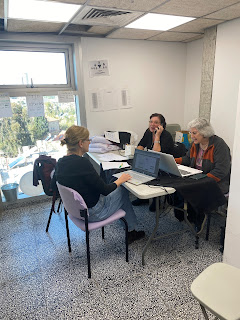









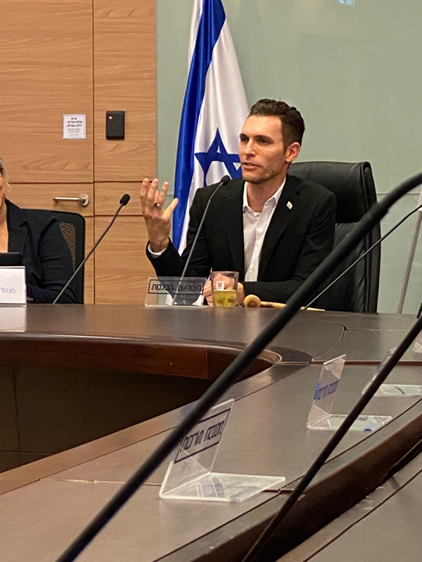


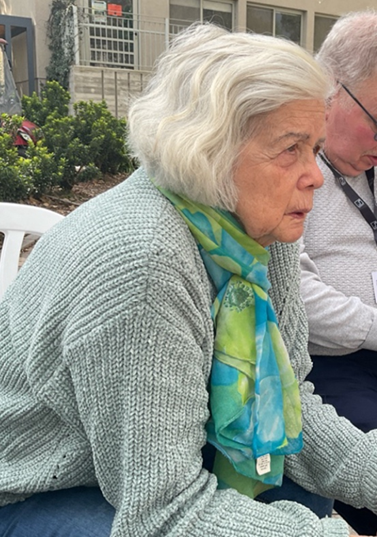
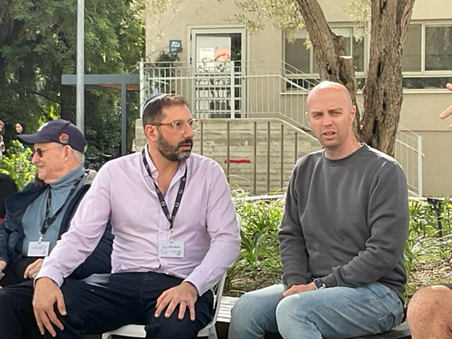
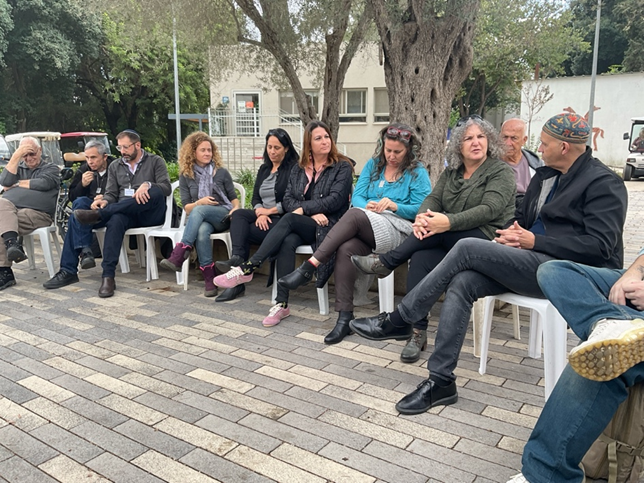
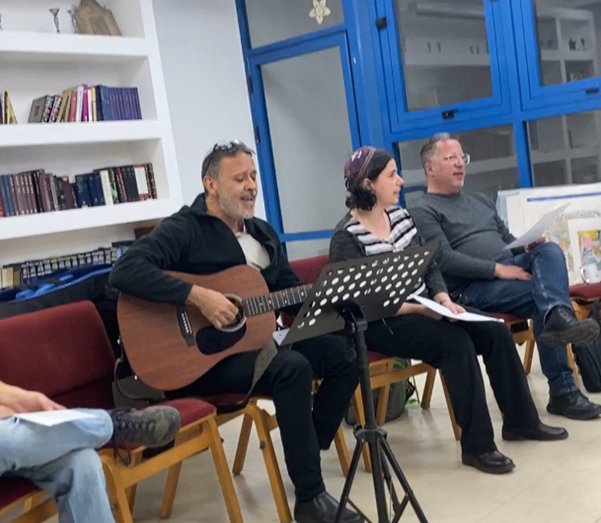

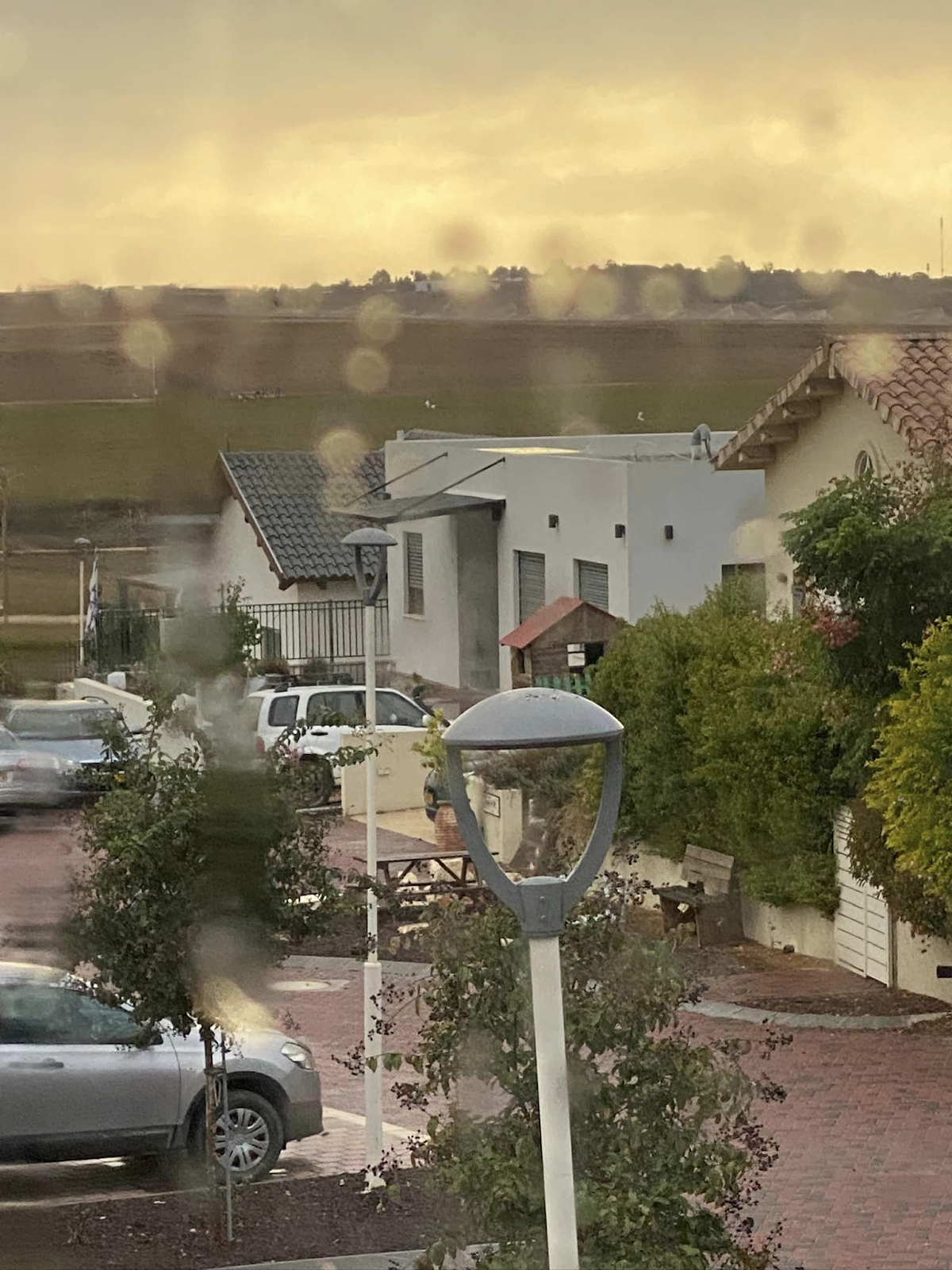
 (At Kibbutz Dorot)
(At Kibbutz Dorot)